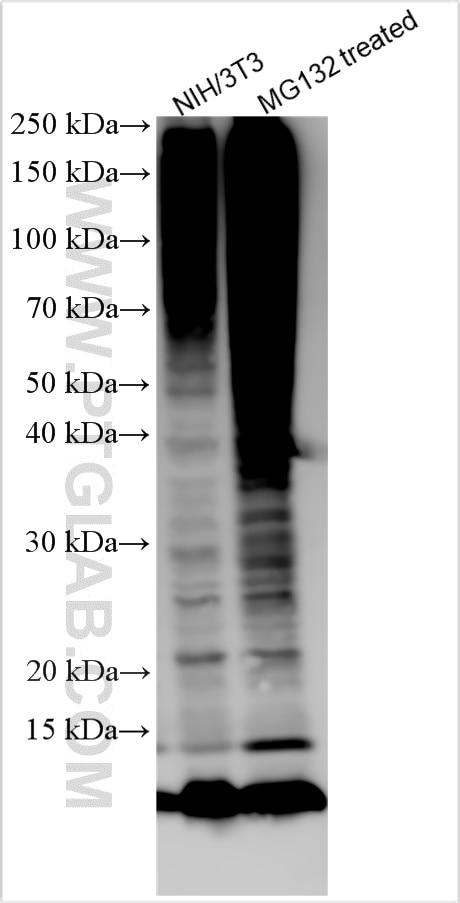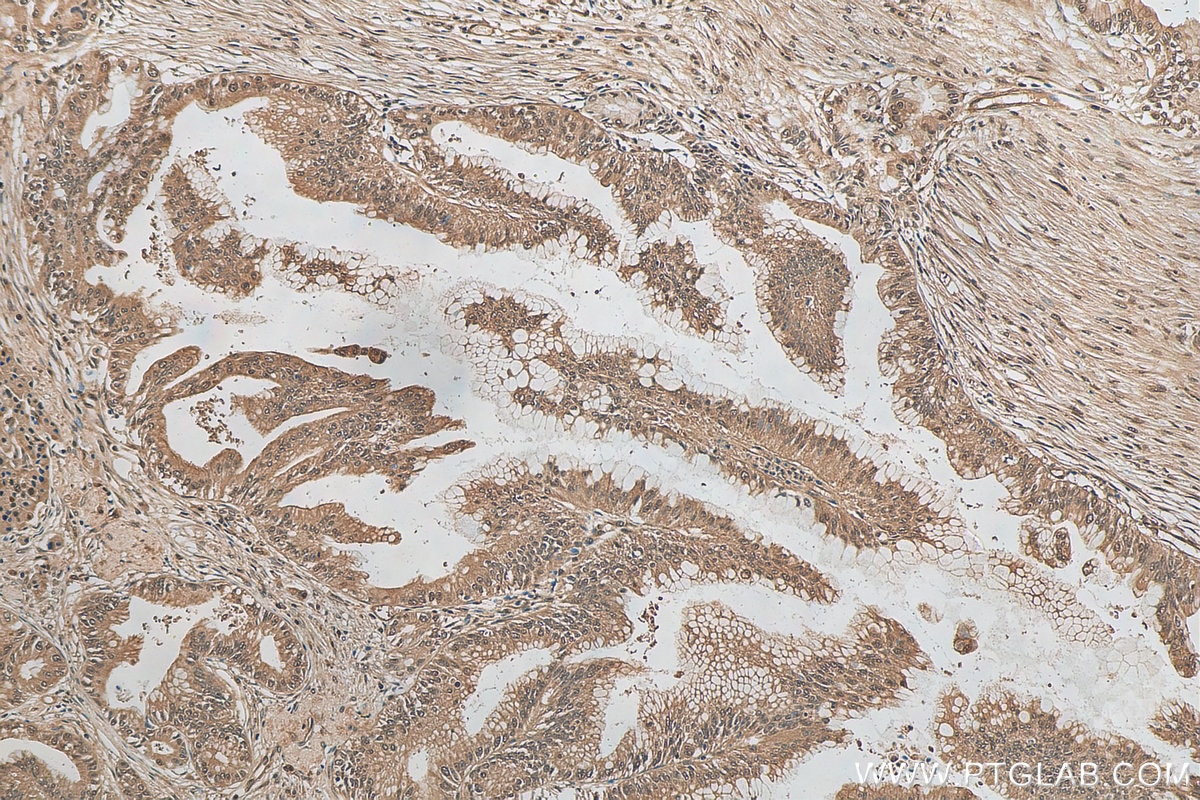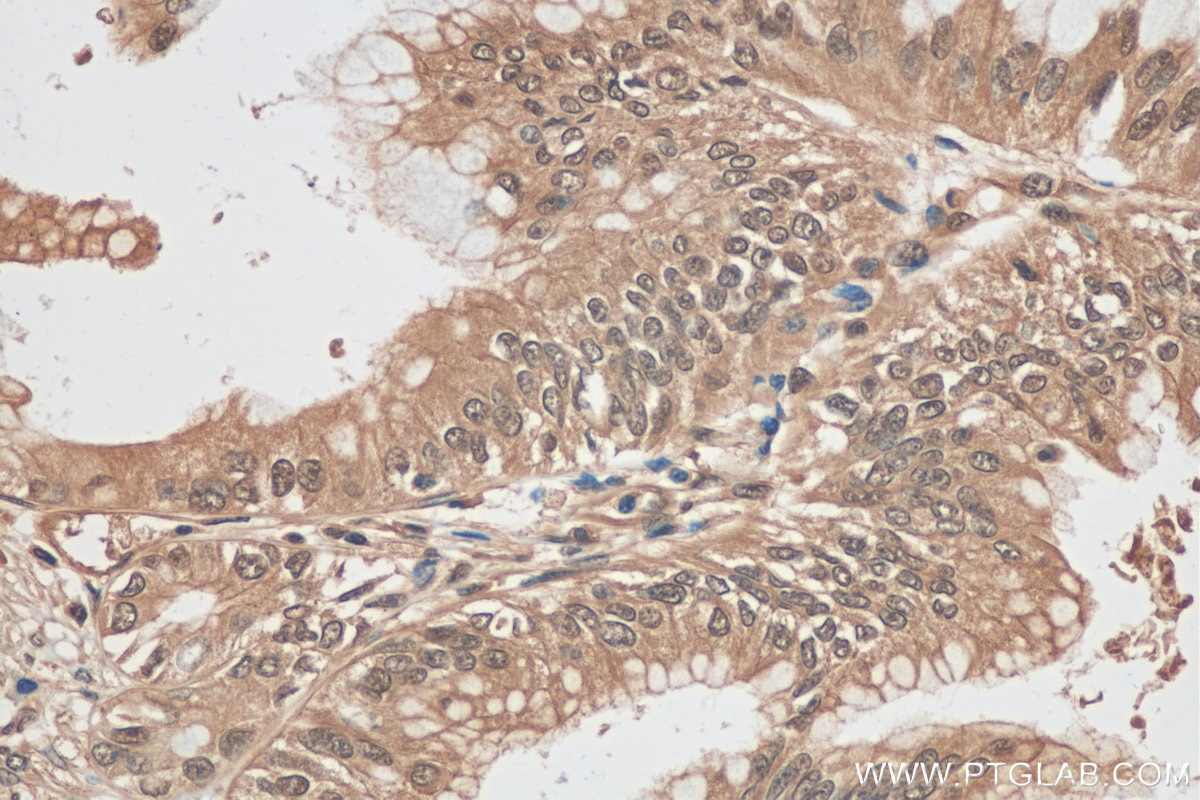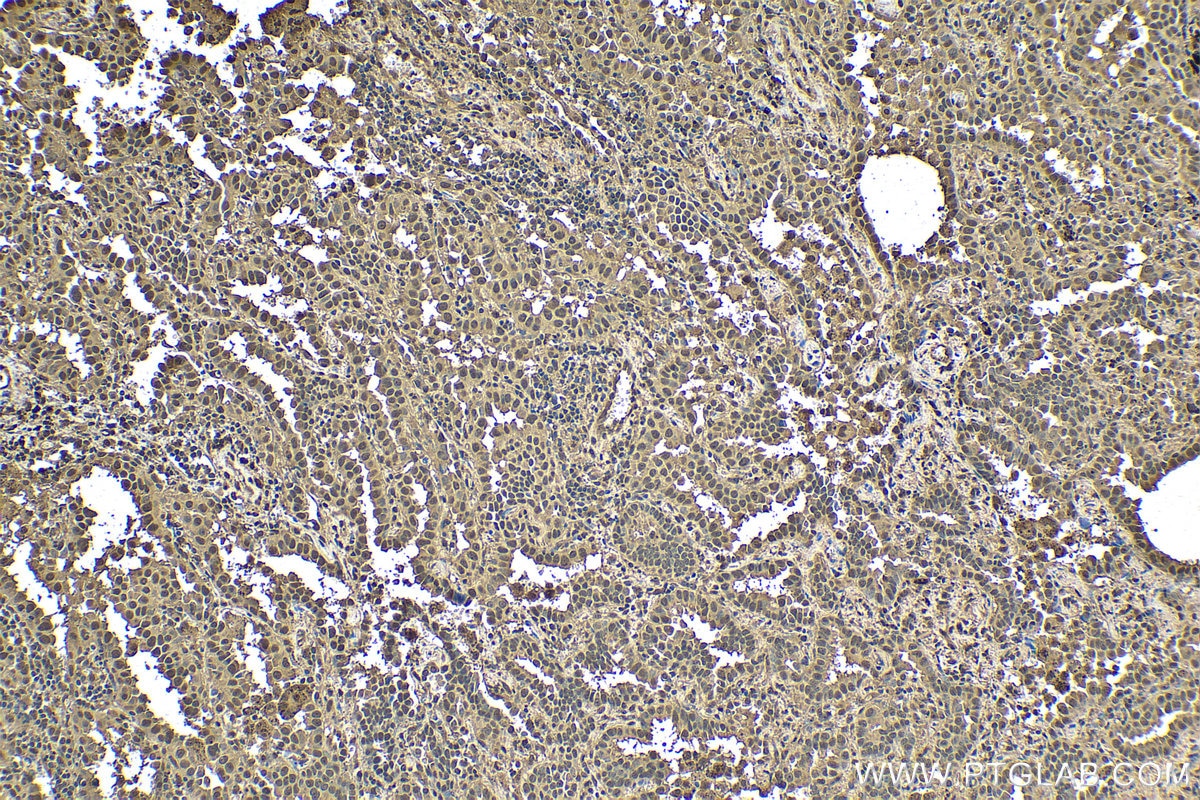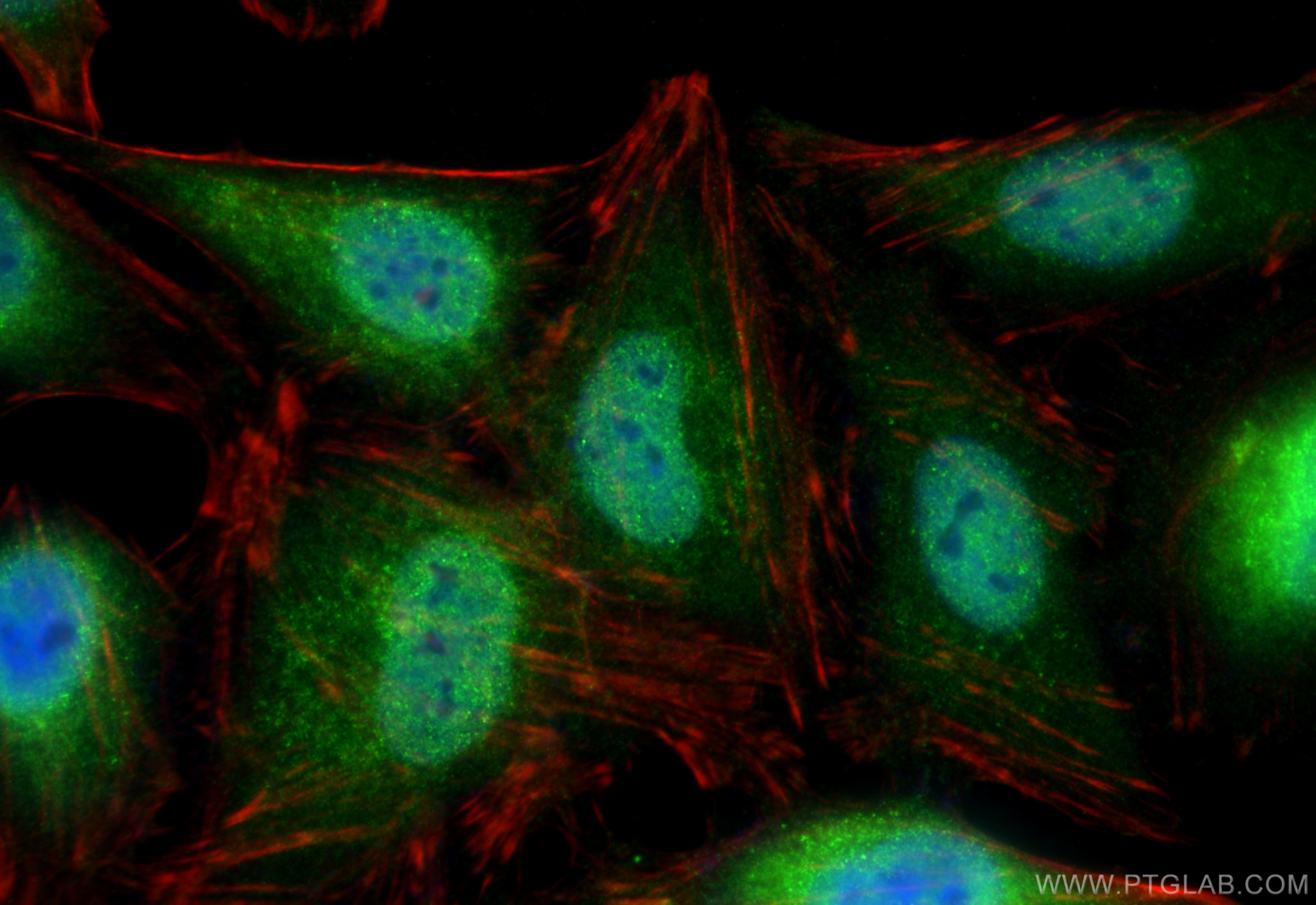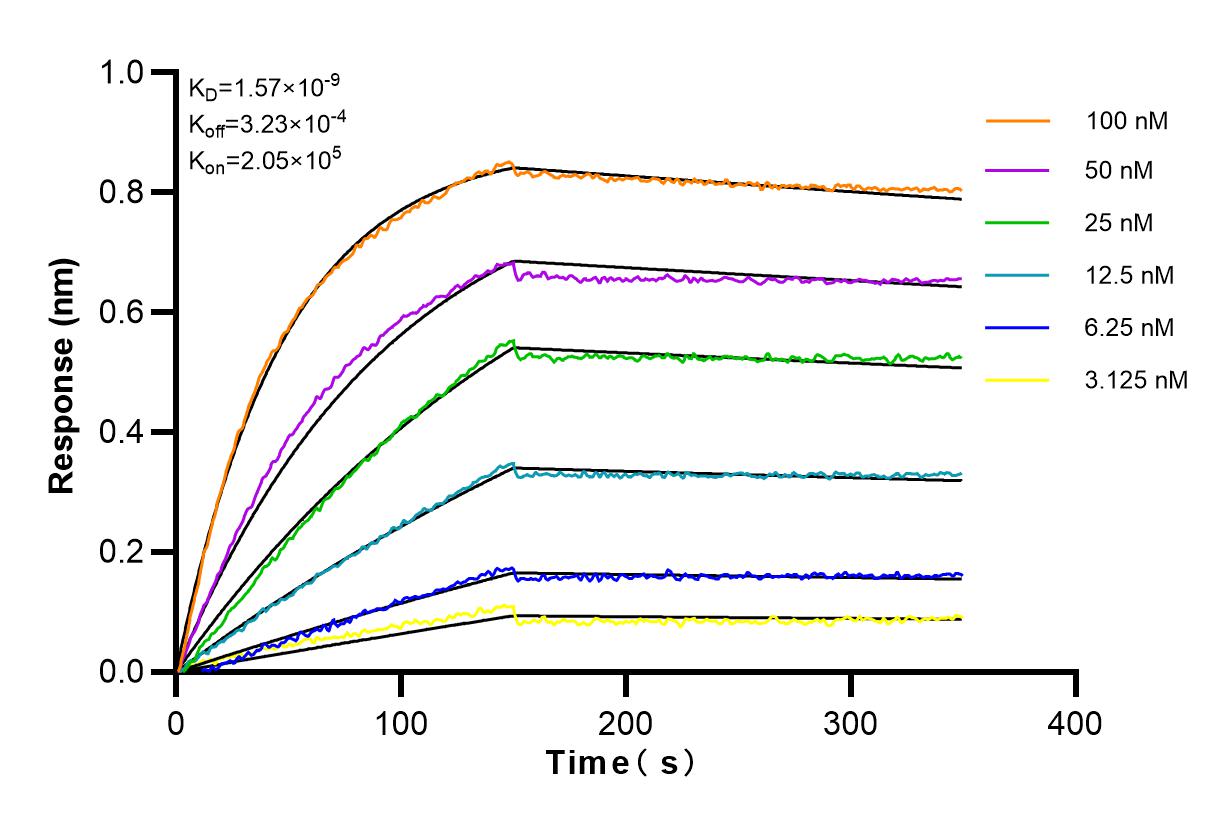Validation Data Gallery
Tested Applications
| Positive WB detected in | NIH/3T3 cells, MG132 treated NIH/3T3 cells |
| Positive IHC detected in | human pancreas cancer tissue, human lung cancer tissue Note: suggested antigen retrieval with TE buffer pH 9.0; (*) Alternatively, antigen retrieval may be performed with citrate buffer pH 6.0 |
| Positive IF/ICC detected in | HeLa cells |
Recommended dilution
| Application | Dilution |
|---|---|
| Western Blot (WB) | WB : 1:10000-1:100000 |
| Immunohistochemistry (IHC) | IHC : 1:50-1:500 |
| Immunofluorescence (IF)/ICC | IF/ICC : 1:50-1:500 |
| It is recommended that this reagent should be titrated in each testing system to obtain optimal results. | |
| Sample-dependent, Check data in validation data gallery. | |
Published Applications
| WB | See 14 publications below |
| IP | See 6 publications below |
| CoIP | See 3 publications below |
Product Information
80992-1-RR targets ubiquitin in WB, IHC, IF/ICC, IP, CoIP, ELISA applications and shows reactivity with human, mouse, rat, canine, hamster, yeast, spinach samples.
| Tested Reactivity | human, mouse, rat, canine, hamster, yeast, spinach |
| Cited Reactivity | human, mouse, rat |
| Host / Isotype | Rabbit / IgG |
| Class | Recombinant |
| Type | Antibody |
| Immunogen |
CatNo: Ag0260 Product name: Recombinant human ubiquitin protein Source: e coli.-derived, PGEX-4T Tag: GST Domain: 104-229 aa of BC000379 Sequence: AKIQDKEGIPPDQQRLIFAGKQLEDGRTLSDYNIQKESTLHLVLRLRGGMQIFVKTLTGKTITLEVEPSDTIENVKAKIQDKEGIPPDQQRLIFAGKQLEDGRTLSDYNIQKESTLHLVLRLRGGC 相同性解析による交差性が予測される生物種 |
| Full Name | ubiquitin B |
| GenBank accession number | BC000379 |
| Gene Symbol | ubiquitin |
| Gene ID (NCBI) | 7314 |
| RRID | AB_2923694 |
| Conjugate | Unconjugated |
| Form | |
| Form | Liquid |
| Purification Method | Protein A purification |
| UNIPROT ID | P0CG47 |
| Storage Buffer | PBS with 0.02% sodium azide and 50% glycerol{{ptg:BufferTemp}}7.3 |
| Storage Conditions | Store at -20°C. Stable for one year after shipment. Aliquoting is unnecessary for -20oC storage. |
Background Information
Ubiquitin B (UBB) is a member of ubiquitin family, one of the most conserved proteins known. Ubiquitin B is required for ATP-dependent, non-lysosomal intracellular protein degradation of abnormal proteins and normal proteins with a rapid turnover. Ubiquitin B is covalently bound to proteins to be degraded, and presumably labels these proteins for degradation. Ubiquitin also binds to histone H2A in actively transcribed regions but does not cause histone H2A degradation, suggesting that ubiquitin is also involved in regulation of gene expression.When polyubiquitin is free (unanchored-polyubiquitin), it also has distinct roles, such as in activation of protein kinases, and in signaling. This gene consists of three direct repeats of the ubiquitin coding sequence with no spacer sequence. Consequently, the protein is expressed as a polyubiquitin precursor with a final amino acid after the last repeat. Aberrant form of this protein has been noticed in patients with Alzheimer's and Down syndrome. Interestingly ubiquitin also becomes covalently bonded to many types of pathological inclusions which appear to be resistant to normal degradation.
Protocols
| Product Specific Protocols | |
|---|---|
| IF protocol for ubiquitin antibody 80992-1-RR | Download protocol |
| IHC protocol for ubiquitin antibody 80992-1-RR | Download protocol |
| WB protocol for ubiquitin antibody 80992-1-RR | Download protocol |
| Standard Protocols | |
|---|---|
| Click here to view our Standard Protocols |
Publications
| Species | Application | Title |
|---|---|---|
Cell Signal Repurposing a plant alkaloid homoharringtonine targets insulinoma associated-1 in N-Myc-activated neuroblastoma | ||
Clin Transl Oncol LncRNA XXYLT1-AS2 promotes tumor progression via autophagy inhibition through ubiquitinated degradation of TFEB in hepatocellular carcinoma | ||
Naunyn Schmiedebergs Arch Pharmacol The METTL3/IGF2BP1 axis-mediated m6 A modification of TRIM11 mRNA suppresses ferroptosis and accelerates malignant progression in non-small cell lung cancer cells by degrading ACSL4 | ||
bioRxiv Elucidating cancer cachexia-mediated aberrant cardiac wasting signaling in human iPSC-derived cardiac muscle | ||
Cell Signal LncRNA LINC00667 inhibits breast cancer progression by regulating POTEE to suppress mitochondrial oxidative phosphorylation | ||
Acta Pharm Sin B STK39 inhibits antiviral immune response by inhibiting DCAF1-mediated PP2A degradation |

